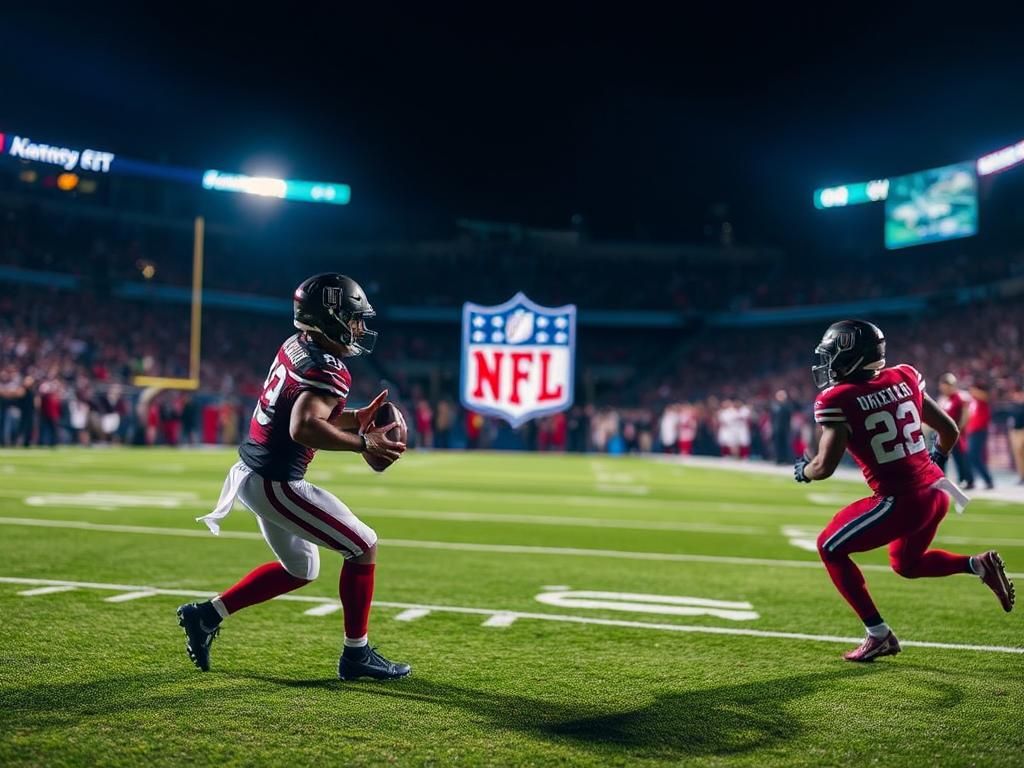Overview of His Significance
Billy Beane is an influential figure in baseball management, heralded for his groundbreaking strategies in player evaluation. His approach, steeped in analytics, has revolutionized the way teams assess player potential and has popularized the concept of sabermetrics within the sport. Beane’s unique methods provide a compelling case study of how data-driven decision-making can lead to significant competitive advantages in Major League Baseball.
Brief Biography
Born on March 29, 1962, in Orlando, Florida, Billy Beane demonstrated an early passion for baseball that propelled him into a career that would redefine the game’s management practices. He initially pursued a career as a player, facing numerous ups and downs before transitioning into team management, where he would leave an indelible mark on the sport.
Early Life and Career
Background Information
Billy Beane’s journey started in a family that supported his athletic endeavors. Growing up in a household that valued sports, Beane’s childhood interests led him to excel in baseball from a young age. His parents played an essential role in nurturing his talent, encouraging him to pursue his passion for the game.
College Career
Beane showcased his talent as a standout player at Stanford University, where he was known for his powerful hitting and impressive fielding. In 1980, his skills earned him a spot in the MLB Draft, where he was selected by the New York Mets. His college career would serve as the launching pad for what would become a tumultuous professional journey.
Professional Playing Career
Billy Beane’s professional career included stints with the New York Mets, Minnesota Twins, and Oakland Athletics. Despite his immense potential, Beane struggled to maintain consistent performance at the Major League level, facing challenges both on and off the field. After a few seasons, he ultimately decided to retire from playing, setting the stage for a remarkable shift into management.
Transition to Management
Joining the Oakland Athletics
In the late 1990s, Billy Beane joined the Oakland Athletics as Assistant General Manager, where he quickly recognized the organizational challenges the team faced. The Athletics were operating with a limited budget, struggling to compete against richer franchises. Beane’s analytical mindset positioned him to introduce new strategies that would soon change the course of the franchise.
Introduction to Sabermetrics
Sabermetrics, defined as the empirical analysis of baseball, became a cornerstone of Beane’s management philosophy. Key principles of sabermetrics involve the use of advanced metrics such as On-base Percentage (OBP) and Wins Above Replacement (WAR). These metrics helped Beane identify undervalued players, setting a new standard for team evaluation processes across the league.
Implementation of Innovative Strategies
The 2002 Season
The 2002 season marked a pivotal moment for Billy Beane and the Oakland Athletics. With a roster crafted through innovative strategies, Beane led the A’s to an impressive performance that included a record-setting streak of 20 consecutive wins. By strategically acquiring undervalued and overlooked players, Beane’s approach challenged traditional baseball wisdom.
Notable Accomplishments
Under Beane’s leadership, the Athletics not only won the American League West but also showcased the effectiveness of his methods by crafting a winning team with one of the lowest payrolls in the league. The impact of these strategies on team dynamics and morale was profound, demonstrating that performance could be driven by analytics rather than just monetary investment.

Legacy and Influence
The Moneyball Philosophy
The Moneyball philosophy, characterized by its focus on data-driven decision-making, redefined how teams approached player evaluation. By prioritizing metrics like On-base Percentage and Slugging Percentage over traditional scouting elements, Beane’s ideology set a benchmark for a new era in baseball management.
Impact on Major League Baseball
Beane’s influence extended far beyond the Oakland Athletics. His success inspired teams across Major League Baseball to adopt analytics in their evaluation processes. The growing trend of data utilization in player assessment led to significant shifts in how franchises strategized recruiting and developing talent.
Cultural Impact
The Moneyball Book and Film
The literary work “Moneyball” by Michael Lewis captures Billy Beane’s revolutionary approach to baseball management. This insightful book details the A’s journey and emphasizes the importance of analytics in sports. The film adaptation, starring Brad Pitt as Beane, brought his story to a wider audience and received critical acclaim, solidifying Beane’s status as a cultural icon in sports.
Influence on Other Sports
The application of sabermetrics is not confined to baseball; other sports have begun to embrace analytics in similar ways. From basketball to soccer, the broader implications of Beane’s approach have emerged, shaping how teams strategize and develop players across various sports disciplines.
Criticism and Challenges
Limitations of the Moneyball Approach
Although Billy Beane’s methods have garnered widespread acclaim, they are not without criticism. Some experts argue that the Moneyball approach may not fully account for the complexities of player development or the intangibles that traditional scouting emphasizes. Furthermore, instances where teams heavily relied on analytics yet struggled to perform highlight the risks associated with an over-reliance on data.
Beane’s Response to Criticism
Billy Beane has acknowledged the limitations embedded within the Moneyball philosophy. His evolution as a manager has included a more balanced approach, one that harmonizes analytics with traditional scouting insights, appreciating both data and the nuanced understanding that experienced scouts bring to the table.
Current Role and Future Endeavors
Beane’s Position in the A’s Organization
As of 2023, Billy Beane serves as the Executive Vice President of Baseball Operations for the Oakland Athletics. In this role, he continues to influence organizational strategies while overseeing the team’s player evaluation processes. His presence ensures that the core principles of his successful methodologies remain integral to the franchise’s operations.

Vision for the Future of Baseball
Billy Beane’s vision extends to the future of baseball, where he foresees continued advancements in player evaluation and management practices. His insights include the anticipated evolution of analytics and how they will reshape the game, emphasizing the need for ongoing adaptation to maintain a competitive edge.
Conclusion
Summary of Billy Beane’s Impact
Billy Beane has made transformative contributions to baseball and sports management at large. His pioneering use of sabermetrics and the Moneyball philosophy not only enhanced team performance in Oakland but also inspired a cultural shift in how teams across Major League Baseball operate. Future generations of managers and executives continue to study Beane’s principles, ensuring that his legacy endures.
Final Thoughts
As baseball analytics persist in evolving, observing the ongoing developments in this field is crucial for enthusiasts and professionals alike. Readers are encouraged to explore further resources on Billy Beane and the impact of analytics in sports, where the intersection of statistics and strategy continues to shape the future of the game.
| Aspect | Description | Impact |
|---|---|---|
| Player Evaluation | Introduction of sabermetrics | Revolutionized scouting practices |
| The Moneyball Philosophy | Analytical approach to team building | Changed competitive dynamics in MLB |
| 2002 A’s Season | 20-game winning streak | Showcased effectiveness of undervalued signings |
| Cultural Influence | Moneyball book and film | Increased public interest and understanding of analytics |
| Current Role | Executive VP of Baseball Operations | Ongoing influence in MLB methodologies |
FAQ
What is Billy Beane known for?
Billy Beane is known for his innovative approach to baseball management, particularly his use of sabermetrics to evaluate player performance and build competitive teams on a limited budget.
How did Billy Beane impact baseball?
Beane popularized the Moneyball philosophy, significantly changing how teams assess players and formulate strategies in Major League Baseball, leading to the widespread adoption of analytics.
What are some key metrics used in sabermetrics?
Some key metrics include On-base Percentage (OBP), Wins Above Replacement (WAR), and Slugging Percentage (SLG), which offer deeper insights into player performance compared to traditional stats.
What challenges has Beane faced in his career?
Challenges include criticism of the limitations of the Moneyball approach and the struggle of some teams that heavily relied on analytics but underperformed, highlighting the need for a balanced strategy.
What role does Billy Beane currently hold?
As of 2023, Billy Beane serves as the Executive Vice President of Baseball Operations for the Oakland Athletics, where he continues to influence player evaluation and management strategies.
How has the Moneyball philosophy influenced other sports?
The Moneyball philosophy has inspired other sports to embrace analytics, leading to similar approaches in basketball, soccer, and beyond, changing how teams strategize and make decisions.
What is Beane’s vision for the future of baseball?
Beane envisions continued advancements in player evaluation methods, with analytics playing a vital role in shaping the future of baseball management and on-field strategies.
Is the Moneyball approach universally effective?
While the Moneyball approach has been successful for many teams, it is not universally effective, as evidenced by teams that struggled despite relying heavily on analytics without considering traditional scouting insights.
Where can I learn more about sabermetrics and Billy Beane?
For more information on sabermetrics and Billy Beane, consider exploring resources such as [Baseball Prospectus](https://www.baseballprospectus.com) and the book “Moneyball” by Michael Lewis for deeper insights into analytics in baseball.
What are some practical tips for applying analytics in sports management?
Some practical tips include:
1. Identify key performance metrics relevant to your sport.
2. Balance analytical insights with traditional scouting reports.
3. Continuously adapt to new research and data analysis techniques.
4. Foster collaboration between analysts and coaching staff to refine strategies.


